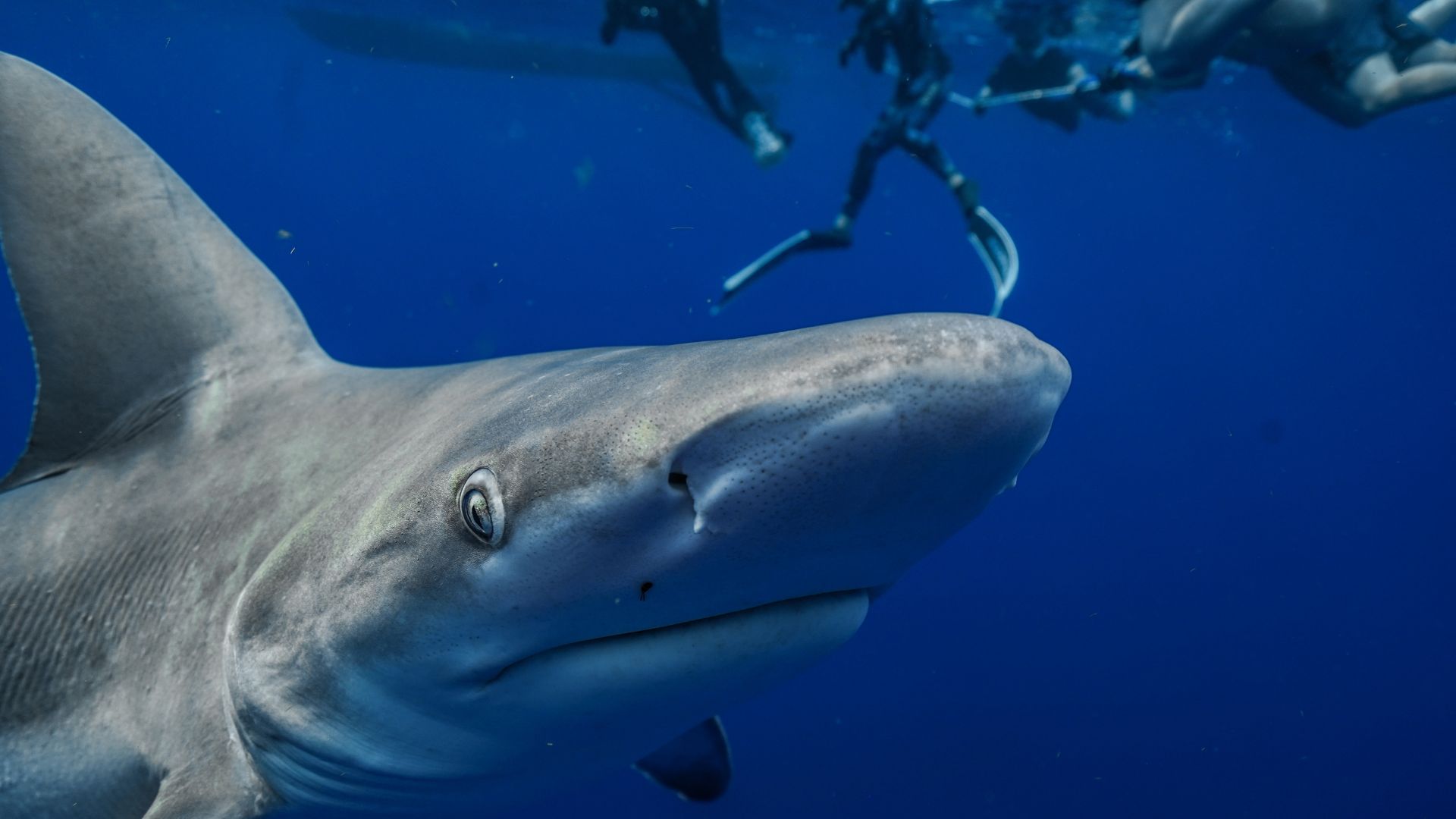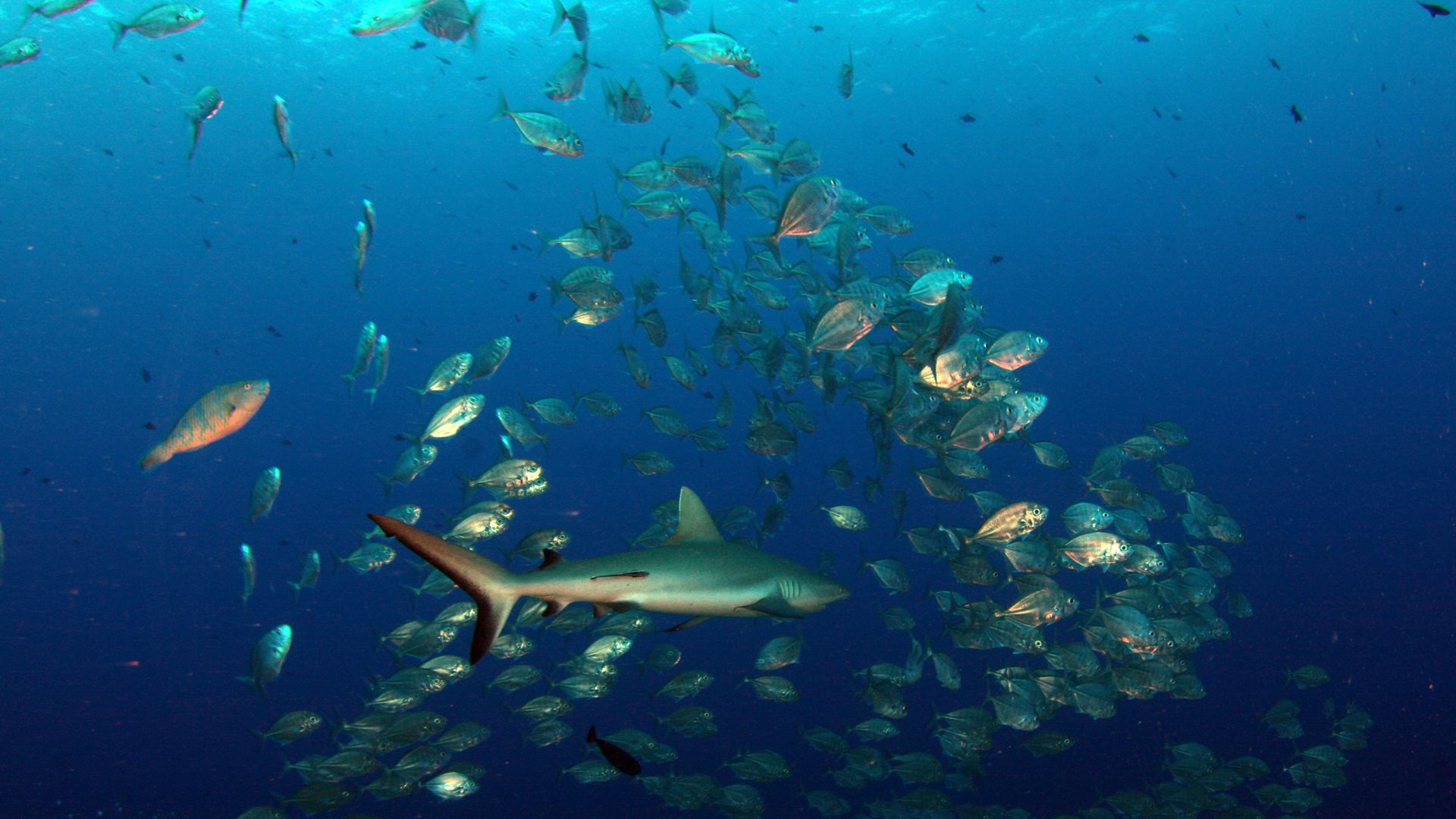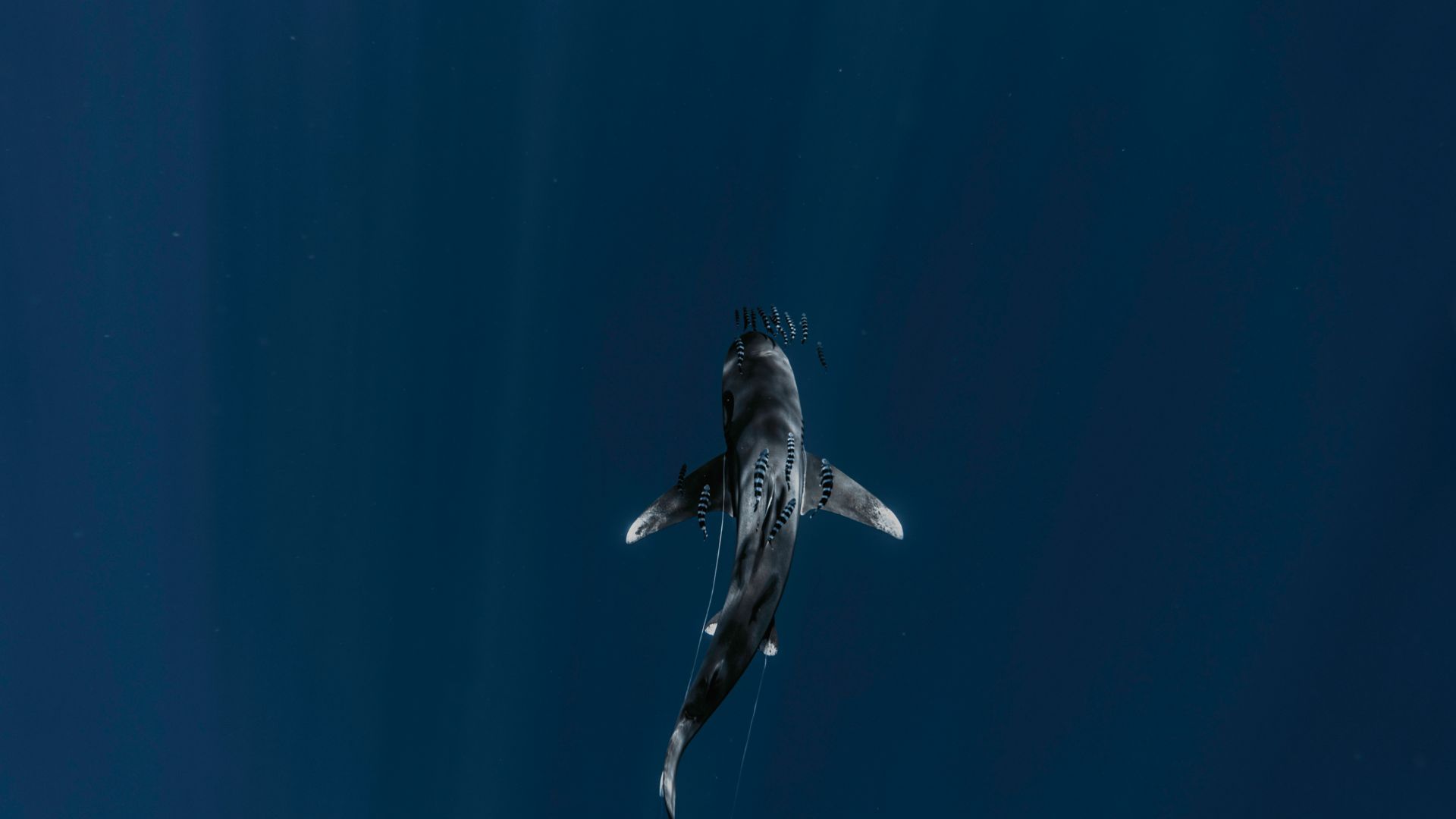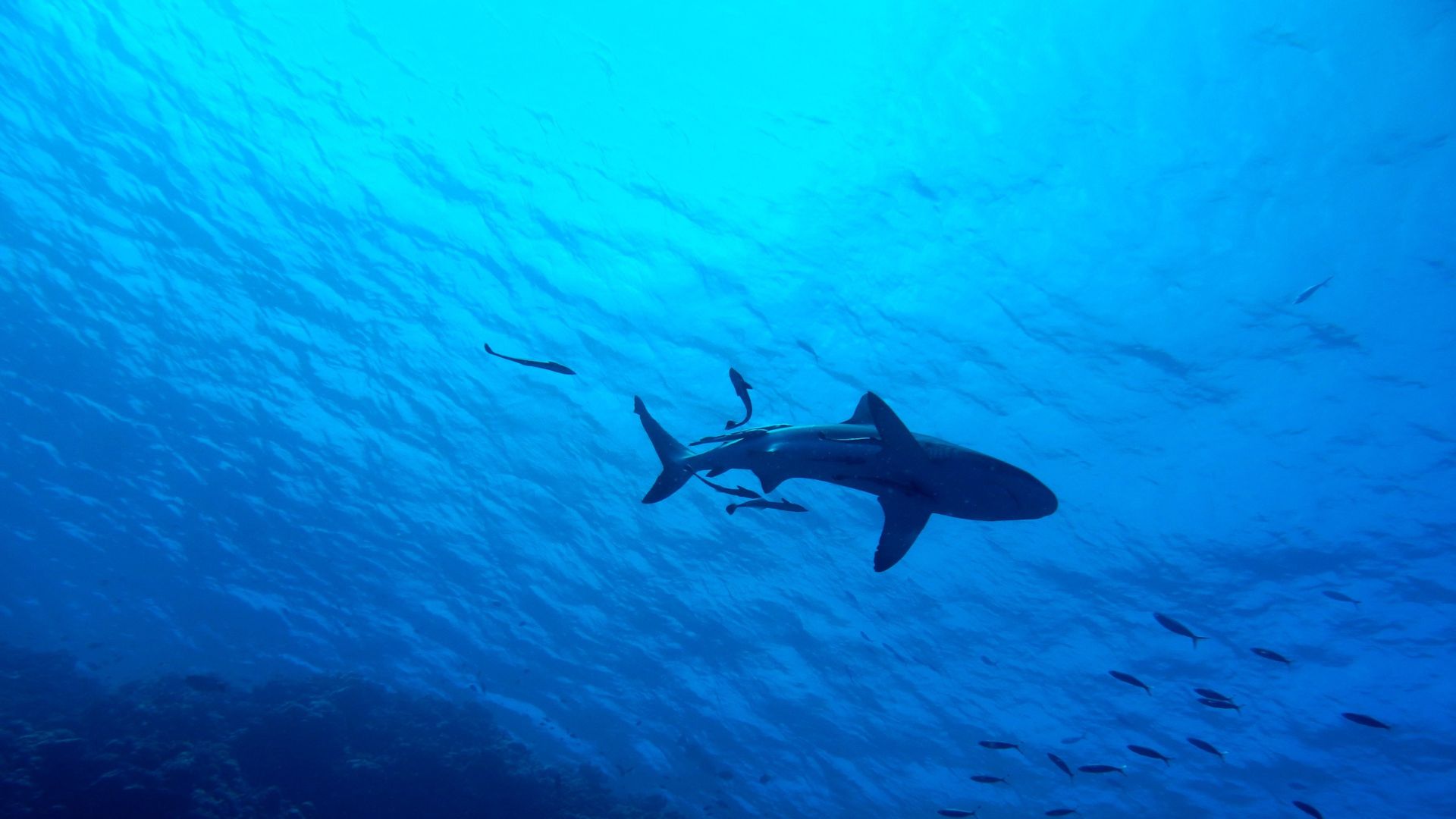
The fascinating world of shark senses: How do they see, smell, and hear?
Sharks are often painted as creatures of mystery and fear, yet their true abilities go far beyond their physical power and reputation. One of the most fascinating aspects of sharks is their extraordinary sensory capabilities, which are finely tuned to help them navigate the deep ocean and hunt for prey. These senses are not just impressive—they are essential to their survival. Sharks rely on a combination of vision, smell, and hearing that allows them to thrive in an environment where many other creatures would struggle.
In this article, we’ll dive into the unique world of shark senses and explore how they use these abilities to hunt, navigate, and survive in the ocean’s depths:
- Shark vision: Seeing the unseen
- Differences between shark vision and human vision
- Sharks’ sense of smell: An unmatched ability
- Sharks’ hearing abilities: A sophisticated system
- The importance of shark senses
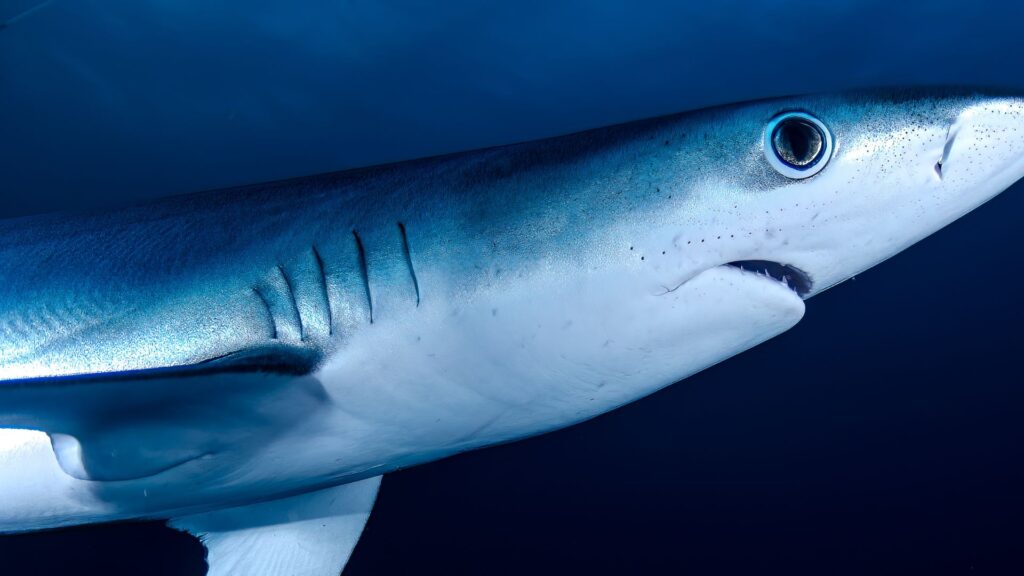
Shark vision: Seeing the unseen
Sharks’ vision is highly specialised for their environment. Unlike humans, sharks have evolved to see in low-light conditions, which is crucial for hunting in the deep, murky waters where they often live. Many species of sharks have a reflective layer behind their retinas, known as the tapetum lucidum, which helps them see in low light by reflecting light back through the retina, effectively giving them enhanced night vision. This adaptation allows sharks to be efficient hunters even when they are far below the surface or hunting in the dark depths of the ocean.
Sharks can also detect movement more easily than humans, which is particularly useful for spotting prey. Their vision is thought to be especially good at detecting contrasts between light and dark, rather than seeing fine detail or colour. This is why many sharks are more effective in hunting at dawn or dusk, when contrasts between light and shadow are most pronounced. Some sharks, such as the hammerhead, have a wider field of vision due to the shape of their heads, which helps them spot movement from almost every direction.
However, compared to humans, sharks are less focused on seeing fine details. Humans have three types of cones in their eyes, allowing us to see a wide range of colours, but sharks have only two, meaning their colour vision is limited. They rely more on motion and contrast rather than distinguishing colours or detailed shapes. This makes sense, as sharks are often hunting in low-light conditions or in deep waters where colour is less important than detecting movement and distinguishing between potential prey and other objects in their environment.

Differences between shark vision and human vision
While humans see the world in vibrant colour, sharks experience a more monochrome world with a focus on light and dark contrasts. Our vision is adapted for a wide range of conditions, thanks to our colour perception, sharp detail, and ability to focus on objects at various distances. Sharks, on the other hand, have vision that is finely tuned for detecting the slightest movements, which is crucial when tracking prey that might be camouflaged in murky waters or hiding beneath the surface.
Sharks also see in a more limited range of light compared to humans. They rely more on the intensity of light and motion, which helps them hunt effectively in dim environments. This is why sharks can be so successful as hunters in deep water, where low-light conditions prevail. While humans might struggle to see well in these conditions, sharks have a remarkable ability to detect changes in light and movement, allowing them to hunt with precision.
Sharks’ sense of smell: An unmatched ability
Arguably, the most impressive of all shark senses is their sense of smell. Sharks have an extraordinarily keen olfactory system, allowing them to detect minute traces of chemicals in the water from miles away. This sense of smell is crucial for sharks when they are hunting, as they rely on it to track the scent of potential prey, such as blood or other bodily fluids released by injured animals. It’s estimated that sharks can detect a single drop of blood in an Olympic-sized swimming pool, which is an astonishing feat considering the vastness of the ocean.
This powerful sense of smell allows sharks to detect the presence of prey from great distances, and it is especially important when hunting in deep, murky waters where visibility might be limited. Sharks use their olfactory system not only to find food but also to navigate their environment and locate mates. The sense of smell is so finely tuned in some sharks that they can track prey over long distances, guiding them to food sources even when the prey is hidden from view.
Sharks have two separate nostrils, located on either side of their snout, and these nostrils are connected to a pair of olfactory bulbs that process scents. Interestingly, sharks’ nostrils do not serve the same function as those of mammals, as they do not breathe through them. Instead, they use them exclusively for detecting chemicals in the water, making their sense of smell one of the most sophisticated of any animal.
Sharks’ hearing abilities: A sophisticated system
Sharks are also equipped with an incredible sense of hearing, which is vital for detecting prey and other sounds in their environment. While their hearing abilities are not as sharp as their sense of smell, sharks can still hear low-frequency sounds over long distances. They are particularly sensitive to sounds made by their prey, such as the splashing of fish or the movement of marine mammals in distress.
Sharks can hear sounds as low as 10 Hz (a frequency that humans cannot hear), and they can detect vibrations in the water caused by prey moving nearby. Their ability to detect low-frequency sounds is enhanced by specialized structures in their inner ears called ampullae of Lorenzini. These structures, located around their head, allow sharks to detect the faintest of sounds and vibrations in the water, helping them track down their prey, even when it’s hidden or far away.
Sharks’ hearing is especially crucial when they are hunting in the dark, where vision might be limited. By picking up the sound of prey’s movements, sharks can accurately pinpoint their location, making their hearing system an invaluable tool for survival.
The importance of shark senses
Sharks’ senses of sight, smell, and hearing are finely tuned to help them survive and hunt in the vast and often challenging environment of the ocean. Their ability to see in low light, detect chemicals from miles away, and hear the faintest vibrations in the water makes them some of the most efficient hunters on the planet. These senses allow sharks to thrive in the deep sea, where other creatures might struggle to survive. Understanding the incredible sensory capabilities of sharks is crucial for appreciating their role in marine ecosystems and the important balance they maintain as apex predators.
Let’s recap before you go:
- Sharks see in low-light conditions and focus on contrasts between light and dark rather than fine details or colours, making them exceptional hunters in murky or deep waters.
- Sharks rely on detecting movement and light intensity, while humans see in colour and focus on detail. Sharks’ vision is adapted for hunting in dark, underwater environments.
- Sharks have an extraordinary sense of smell, allowing them to detect tiny amounts of chemicals in the water, such as blood, from miles away, which helps them locate prey and navigate their environment.
- Sharks can hear low-frequency sounds, including vibrations caused by prey moving in the water. This sense, enhanced by structures called ampullae of Lorenzini, is crucial for hunting in low-visibility conditions.
- Sharks’ highly developed senses of vision, smell, and hearing are vital for their survival, helping them navigate and hunt efficiently in the ocean’s vast and challenging environment.
As we continue to explore the mysteries of the ocean, learning more about how sharks use their senses to navigate their environment will help us protect these extraordinary creatures. By understanding their unique abilities, we can better appreciate sharks and their essential role in maintaining the health of our oceans.
“Sharks are not just creatures of the ocean, but masters of their senses, using sight, smell, and hearing to navigate the depths with unmatched precision.”
